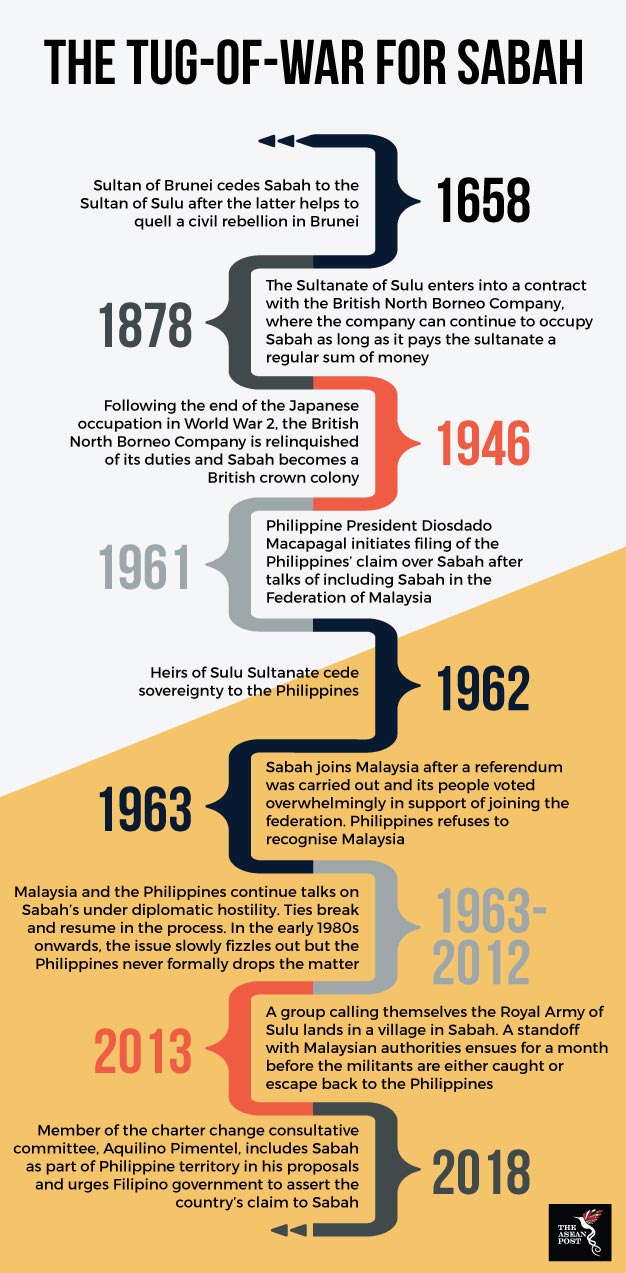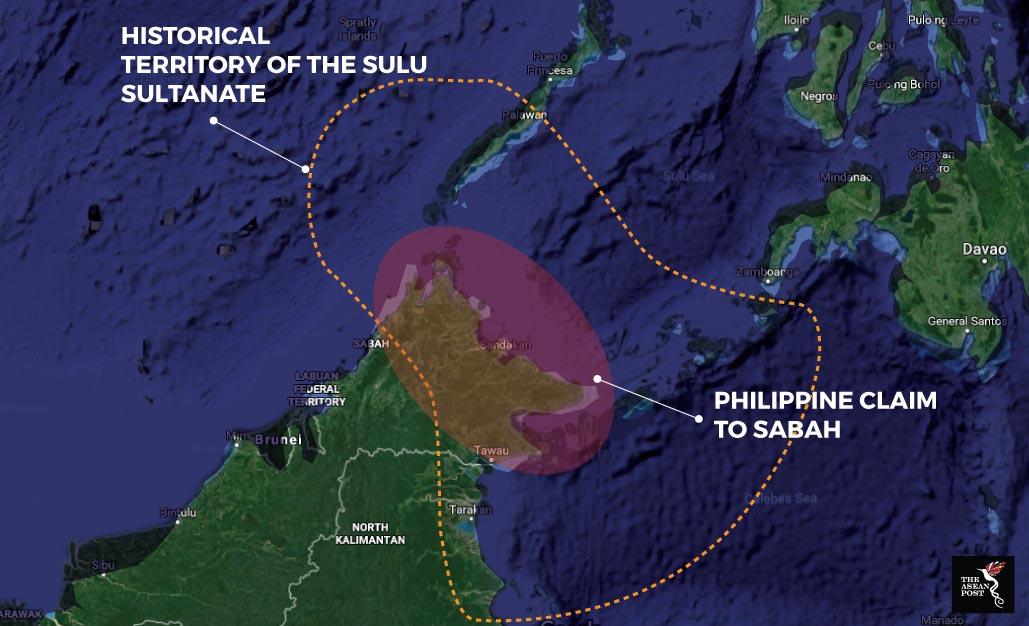Sabah, located in the northern half of the island of Borneo has been at the centre of a diplomatic row between Malaysia and the Philippines – which claims much of its eastern half – since the early 1960s. Currently, Sabah remains under the sovereignty of Malaysia and the matter has laid dormant for many years.
But it has since resurfaced.
The recent question of Sabah’s sovereignty comes in light of a proposed shift to a federal system of government by Philippine President Rodrigo Duterte’s administration. The shift which was largely to avoid Manila-centric politics requires the nation to be domestically separated into states with Manila serving as the “federal capital.”
In drawing up proposals for this new model, member of the consultative committee, Aquilino Pimentel, included Sabah as part of Philippine territory. Pimentel’s proposals included 12 states and he suggested that Sabah be added on as the nation’s 13th state.
“There should be a way that is acceptable under international laws to assert our claim to Sabah. I think we can defer it a little bit more but to say that we stop doing it is not in the context of my proposal,” he said in an interview with Filipino media, ABS-CBN News Channel.
In response, Malaysian Minister of Foreign Affairs, Anifah Aman rubbished the remarks and warned that such statements could hurt bilateral relations between the two nations. He also reiterated his country’s position that it “…does not recognise and will not entertain any claims by any party on Sabah.”
History behind the claim
The roots of the disagreement lie in an 1878 contract between the Sulu Sultanate – which controlled Sabah at the time – and the British North Borneo Company. The British company could occupy the eastern half of Sabah indefinitely as long as it paid a sum of money to the Sultanate.
When World War 2 ended, Sabah was handed over to the British government and made a crown colony. Sabah gained independence in 1963 when in a referendum, its people overwhelmingly voted in favour of joining the Federation of Malaysia.
The Philippines has always maintained that the contract signed in 1878 was to be interpreted as a lease whereas the British and Malaysia regarded it as sale of land. Till today, Malaysia does pay approximately US$1,000 to the Sulu Sultanate in accordance with the agreement.

Is there a right to claim?
According to Associate Professor of Law from the University of the Philippines, Jay Batongbacal, the Philippine government’s official position since they announced the claim in 1962 and subsequent negotiations – particularly the Manila Accord – “…established and preserved that right to pursue the claim despite the formation of the Federation of Malaysia and the conduct of relations thereafter.”
The Manila Accord was signed by Malaysia, the Philippines and Indonesia on 31 July 1963 and included the peaceful settlement of the Philippines’ claim to Sabah.
The Manila Accord has been used multiple times by the Sulu Sultanate as a basis to pressure the Filipino government to assert its claim to the northern part of Sabah as the Sultanate still wields significant influence amongst Sulu residents. Even Duterte himself vowed to pursue the claim during his presidential campaign in 2016 which garnered him political support from locals.
“Now that discussions of the federalism proposal are in full swing, the issue of the Sabah claim has been raised because the advocates want to "activate" the claim and move its dormant status,” Batongbacal, who is also an expert in legal history told The ASEAN Post in an email response.
Straining bilateral relations
These developments could strain bilateral relations between Malaysia and the Philippines – as it did in the past.
“In the 1960s, the two countries ended diplomatic relations twice as a result of this dispute. It might come to that again depending on how the respective leaders handle the matter,” added Batongbacal.
“It is a potential international crisis, especially if Malaysia decides to initiate a crackdown and step up the expulsion of Filipino residents in Sabah. At the same time, it could create a domestic crisis in Mindanao if the Duterte administration is seen to be weakening or conceding its position,” he explained.
In a post-colonial era, the right to self-determination should be made a priority in view of such territorial disputes that involve large swathes of the population. The people of Sabah for all these years have identified themselves as Malaysians and an overnight citizenship change could likely ruffle the feathers of the patriotic among them.
However, it is also the right of the Philippine government to assert its claim in a peaceful manner which could also see the matter being escalated to the International Court of Justice. This would likely negatively impact relations between the two countries.
It is hoped that diplomacy and cool heads prevail with Malaysia and the Philippines both treading the path of peaceful negotiations which doesn’t lead to any skirmishes.
Recommended stories:
